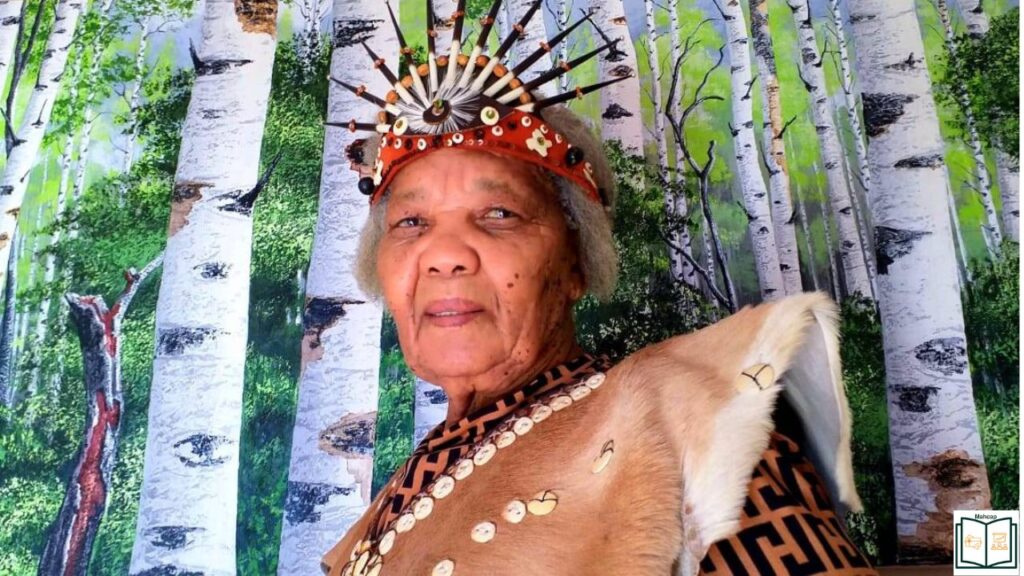The 88-Year-Old Woman Preserving Her Language
What will you do if you wake up and realize you are the only surviving member of your tribe that can speak your local language? Will you do everything to pass down the language to the younger generation till your last breath or watch your cultural heritage die with you?
Endangered Khoisan Language
In South Africa, the Khoisan people, made of the Khoikhoi and San, were prevented from practising their culture and speaking their local language during the colonial period and apartheid regime. These threatened the cultural heritage of the Khoisan people, particularly the Nluu language of the San group. After apartheid, the San people’s language almost went extinct except for about 20 people who could speak it fluently1. Shortly after, all the local fluent speakers in Nluu died except one woman. Therefore, Unesco considered the entire Khoisan language to be endangered.

Role of Ouma Katrina Esau in Preserving Her Cultural Heritage
However, an 88-year-old woman, Madam Katrina Esau, is going to great lengths to preserve her native tongue of N|uu in South Africa, which has been labelled “critically endangered” by Unesco. Madam Katrina Esau, also known as Ouma (grandmother), is the only San who can speak fluent Nluu. She made it her mission to pass down the Nluu language to the younger generation by opening after-school classes for school children2. Though Ouma did not go to school, she used songs, plays, storytelling, and pictures to teach the children the Nluu language.
Today, Madam Katrina Esau, with the help of two academics, has developed a curriculum and materials for the teaching of the Nluu language. Her granddaughter teaches the children the written language using the curriculum with the support of her granddaughter. Esau and her granddaughter published a children’s storybook in N|uu, Afrikaans and English called !Qhoi n|a Tjhoi (Tortoise and Ostrich). The folk tale, recounted by Esau, aims to inspire youngsters through the wily antics of a tortoise.
Recognitions and Honours of Ouma Katrina Esau
Katrina Esau’s dedication to preserving the cultural heritage of the Khoisan people is commendable. President Jacob Zumah awarded her with South Africa’s highest honours, the Order of the Baobab in silver, in recognition of her efforts to preserve the San language and culture. There are calls for her to be awarded an honorary doctorate for her dedication to preserving her cultural heritage, and it is my hope that African and global universities pay heed to this plea.
Lessons Learned
- Ouma Katrina Esau did not use her lack of formal education as an excuse to watch her cultural heritage die with her. She showed courage and confidence in using the African ways of imparting knowledge, “storytelling and songs” to preserve her culture. The first lesson is that, regardless of your educational background, as long as you are alive and healthy, you still have something valuable to offer your community, country, and the world. Therefore, never give up on yourself.
- Also, Ouma’s determination is a wake-up call to us as Africans to appreciate speaking our local languages and pass them down to our children. Even if you belong to a minority group, find pride in your language because it is your identity. If you lose your local language, you lose your identity and the core of your being. Also, I would like to appeal to major and minor tribes to respect diversity and encourage each other to preserve their cultural heritage.
- Never be ashamed of speaking your local language, and never disrespect or dehumanize another for speaking their local language. It is good to know how to communicate in other local and global languages. But your local language must always be part of the languages you speak. Remember, it is not too late to learn to speak your local language.
- Also, Ouma’s commitment to preserving the Nluu language emphasized the role of local people in cultural heritage preservation. Therefore, government stakeholders must remember to consciously involve local indigenous groups in community development efforts for cultural continuity, preservation, and functionality of development projects.
Can you speak your local language? Are you proud of not being able to speak your local language or pass it down to your children? Which identity have you adopted and why? If you are proud of your local language, let us know why.
Subscribe to Mahcap for more updates and opportunities, and share your views with us.
By: Huzeima Mahamadu
- UNESCO. (2010). Atlas of the world’s languages in danger. ↩︎
- https://inews.co.uk/news/world/how-one-woman-saved-south-africa-oldest-language-san-bushmen-1044641 ↩︎
